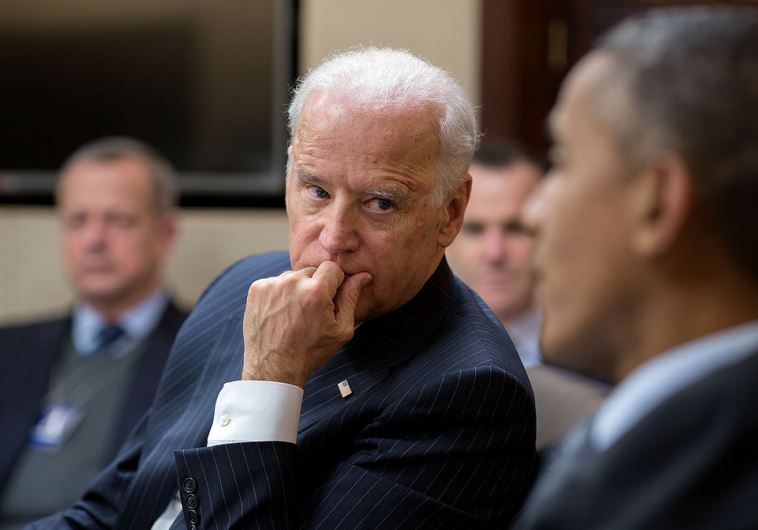'No breakthroughs likely on Israeli-Palestinian front during Biden visit'
Vice president's trip will include visits to the United Arab Emirates, Israel, West Bank and Jordan.
 Vice President Joe Biden listens to President Barack Obama in the White House(photo credit: OFFICIAL WHITE HOUSE PHOTO / PETE SOUZA)Updated:
Vice President Joe Biden listens to President Barack Obama in the White House(photo credit: OFFICIAL WHITE HOUSE PHOTO / PETE SOUZA)Updated: